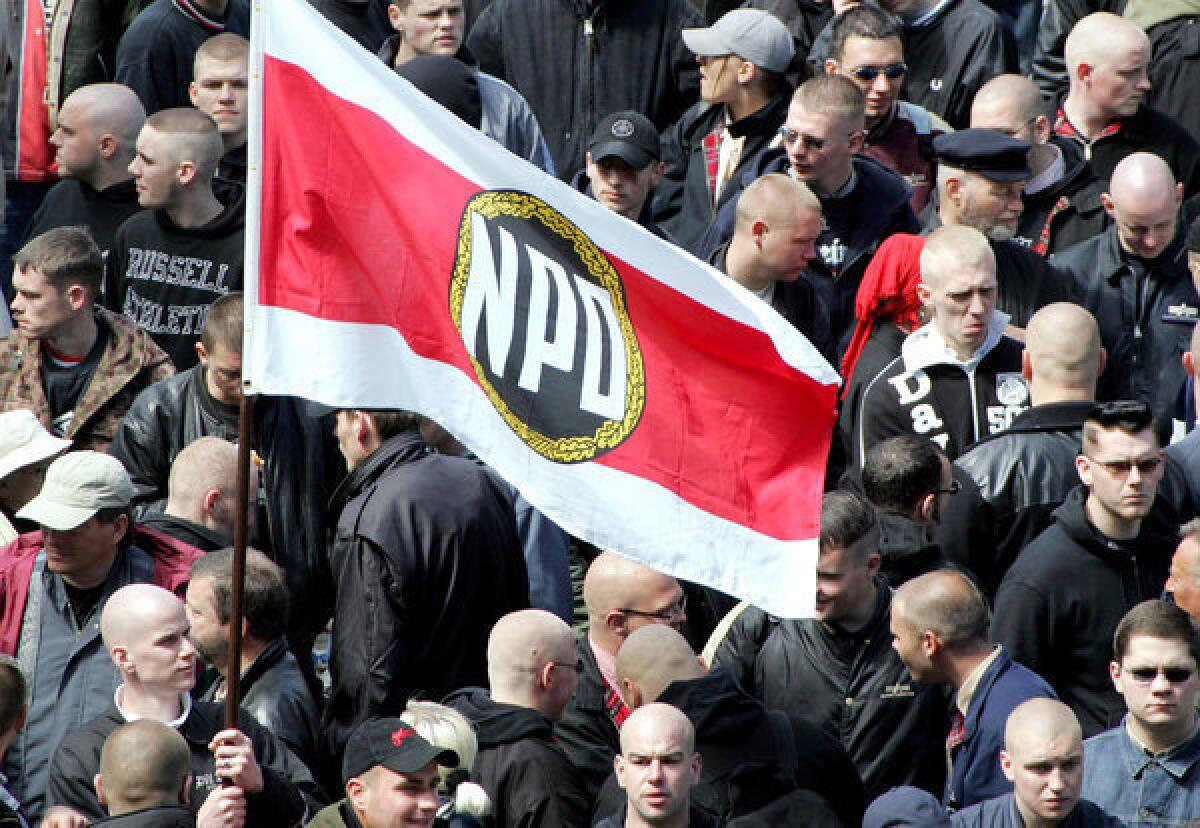Germany moves toward banning far right party

- Share via
BERLIN - State ministers in Germany approved a ban on the far-right National Democratic Party on Thursday, moving a step closer to preventing the party from running in elections.
The ban highlights the tough balancing act that Germany must face in grappling with its Nazi past while protecting free speech.
The unanimous vote sent a signal that “our democracy is able to defend itself and that it will not stand idly by in the face of Nazi machinations,” said Gov. Matthias Platzeck of Brandenburg state, a member of the left-leaning Social Democratic Party. The state ministers were in Berlin for a scheduled meeting.
The measure, which still must go through additional steps to become law, is the first attempt to ban the party since a failed bid in 2003. Back then the federal Constitutional Court threw out the measure because of the presence of government informants in the NPD.
The NPD, with about 6,300 members, has representatives in parliaments in the eastern states of Saxony and Mecklenburg-Western Pomerania and therefore receives taxpayer money. The party won only 1.5% of the vote in the 2009 federal elections, below the 5% threshold needed to hold seats in the federal parliament.
Attempts to revive the ban grew last year after authorities accused a neo-Nazi terror cell called the National Socialist Underground of killing nine immigrant businessmen and a policewoman between 2000 and 2007. Authorities allege that a senior NPD official aided the group.
The state ministers’ vote Thursday follows the unanimous recommendation by state interior ministers to approve the ban. However, German Chancellor Angela Merkel and members of her cabinet remain skeptical that the ban is legally sound and warn that a failed bid would strengthen the party.
NPD followers “could easily become members of another far-right organization or they could bring a new group into life,” German Justice Minister Sabine Leutheusser-Schnarrenberger told the newspaper Die Welt. The issue of informants still remains, she noted, adding that a ban could even be appealed to the European Court of Human Rights, where it probably would face intense scrutiny.
The ban now must be passed by the upper house of the national parliament, which could take up the issue as soon as its next session on Dec. 14. Then it must win the approval of the Constitutional Court.
The NPD says it will vigorously defend itself during the court proceedings.
ALSO:
Afghan intelligence chief wounded in attack
Famous French attractions could be left in the dark
U.S., Israel worry Syria rebels could get chemical weapons
More to Read
Sign up for Essential California
The most important California stories and recommendations in your inbox every morning.
You may occasionally receive promotional content from the Los Angeles Times.










